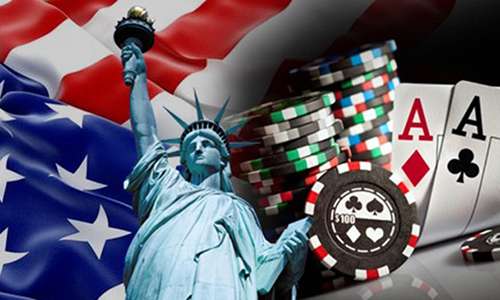New York Online Poker Bill Passes Senate Finance Committee
One more small step has been taken to capture what could be a true golden goose of the United States online poker industry. On Tuesday, the New York State Senate Finance Committee approved Senate Bill S3898, a bill which would legalize and regulate online poker within state borders, by a vote of 27-9. The next step is for the bill to be taken up by the entire Senate.
The bill’s main sponsor is Senator John Bonacic, who has been the champion for online poker in the Senate for a number of years. His bill passed the Senate without a problem last year, cruising through on a 53-5 vote, but it was never voted upon by the New York Assembly. Bonacic re-introduced the bill in January and it quickly passed the Senate’s Committee on Racing, Gaming and Wagering by a unanimous vote.
Some of the key components of the bill, as summarized by my colleague Haley Hintze at the end of January:
• A $10 million licensing fee, with a maximum of ten (10) approved operators; this would provide an immediate income stream of $100 million in licensing revenue for New York if all ten licenses were issued; licenses would be good for 10 years;
• As with the state’s new and under-development land-based casinos, the online sites and operators would be regulated by the New York State Gaming Commission and Division of Gaming;
• 15% tax rate on gross gaming revenue (GGR);
• Most forms of poker to be allowed, with Texas Hold’em and Omaha specifically approved;
• Allows for interstate gaming compacts, allowing for the pooling of players with other states;
• Declares that the offering of online gaming by unlicensed operators is a crime, subject to both taxation on money wagered as well as criminal penalties for the unlicensed operators;
• Calls for a 180-day grace period following passage and signing of the law before its provisions would go into effect, and any new licenses could be issued.
As mentioned, New York would be one of online poker’s golden geese, as it has the fourth highest population in the country and would likely be an ATM for online poker sites. The bullet point about interstate gaming compacts above could prove to be quite important, as it means that New York could pool its player base with those of other states to create more player traffic. Currently, just three states – Nevada, Delaware, and New Jersey – have legal online poker and Pennsylvania, fifth largest state, is working on it.

New York State Senator John Bonacic
New York wouldn’t need the other states; with an estimated 20 million residents and loads more commuting and visiting New York every day, the state will do just fine. One can bet, though, that the moment a bill legalizing online poker is signed by Governor Andrew Cuomo, Nevada and Delaware (who have an interstate gaming compact with each other) will be knocking on the door to the Governor’s mansion. Those two states are barely a blip on the radar and would likely be willing to submit themselves to all sorts of hazing if New York agreed to team up with them.
Interestingly, the poker bill did not see a vote in the Assembly last year because its sponsor on that side of the legislature, Assemblyman J. Gary Pretlow, held it back. Despite his efforts to advance legislation, he became concerned that online poker rooms would not be able to adequately curtail cheating.
Fortunately, Pretlow seems like a fairly thoughtful lawmaker who actually attempts to educate himself on things. As such, he told FIOS1 News’s Andrew Whitman in an interview that he traveled across the border to New Jersey, where he met with the state’s Attorney General. The AG showed him how things worked and Pretlow came away with a much greater appreciation for the systems and technologies involved and is now satisfied that cheating can be prevented in a satisfactory way.
Pretlow was also shown New Jersey’s geolocation systems, which were proven to be as robust as advertised. The Assemblyman is quite confident that his online poker bill will clear the Assembly when the time comes for it.
“When I do sign off on something,” Pretlow told Whitman, “my colleagues feel that it is a good deal and they don’t question why I made a certain decision. They know that if that decision was made, it’s for good reason. So I don’t really see there’s going to be much opposition to moving this along.”
Until then, it is still in the Senate’s hands. Considering the ease of which the online gambling bill passed the two committees and how overwhelming the vote was last year, though, one would think that the odds look very good.



















COMMENTS